Shellfish deaths: MPs call for review of dredging in River Tees
- Published
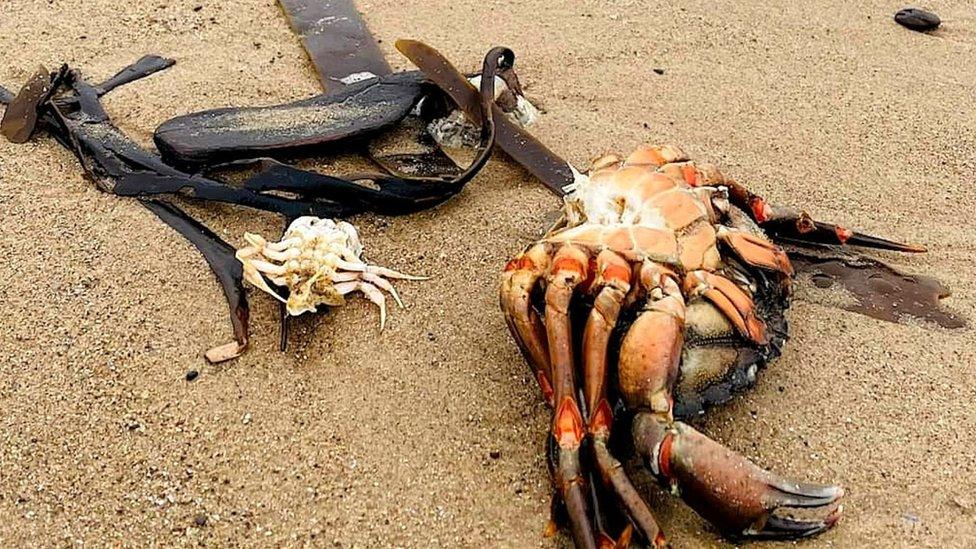
An "urgent" review of dredging on the River Tees is being called for in a bid to find out the cause of mass shellfish deaths off the North East coast
An urgent review of dredging in the River Tees is needed following the mass deaths of shellfish, a cross-party parliamentary committee has said.
The Environment, Food and Rural Affairs Committee also called for more research into the die-offs in 2021.
The MPs want an expert panel to examine conflicting theories about the cause of the deaths and a fund set up to help fishers whose catches have reduced.
Government scientists say algae was to blame but fishers reject their claims.
Last week, the committee heard evidence of two theories for the cause of huge numbers of crustacean deaths in October 2021.
Defra has ruled the consequences of the breakdown of algal bloom is the most likely cause but some academics, commissioned by the North East Fishing Collective, believe a chemical called pyridine is responsible.
They argue pyridine could have been released by maintenance dredging of the Tees.
Sir Robert Goodwill, chair of the Environment, Food and Rural Affairs Committee, has now written to the Secretary of State for Environment, Food and Rural Affairs Thérèse Coffey with the committee's interim findings.
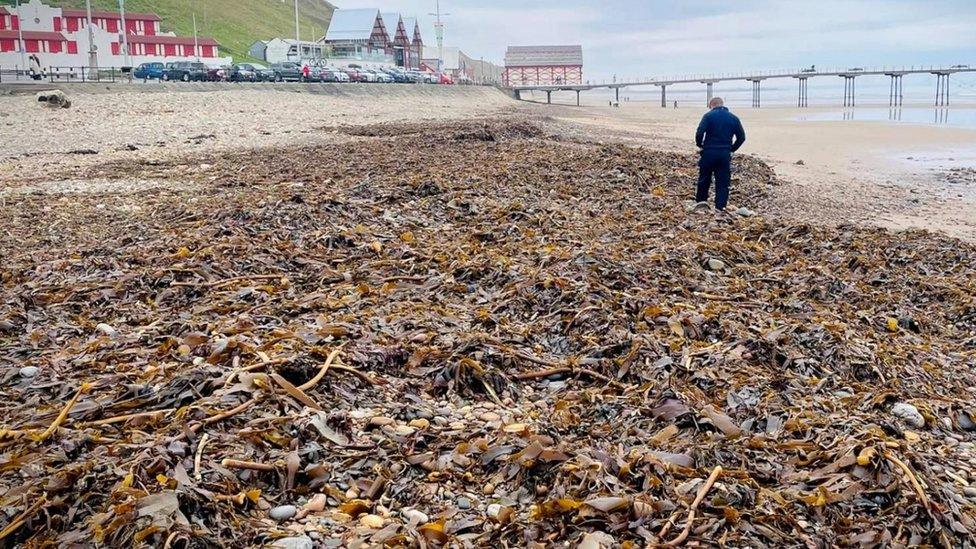
The government is also being urged to set up a fund to help the fishing industry
In the letter, he called for:
More research into the causes of the die-offs - including an investigation into where pyridine may have come from and sampling of the Tees Estuary to create a map of potential pyridine sources
Collaboration in testing between government agencies and the wider scientific community
The appointment of an expert independent panel to review all the evidence
An urgent review of dredging in the Tees - to be carried out by the Marine Management Organisation (MMO)
The MMO should explore what steps could be taken to improve dredging, including: preventing sediment escaping, considering changes to the depth and intensity of dredging, whether new techniques are needed, and where and how dredged material is disposed of
MMO must ensure that all the current conditions on its licence are met and should include pyridine in the testing as part of any future licence approval process
All dredged material should be tested for pyridine and any found with dangerous levels should be removed from the sea
Maintenance dredging to be kept to the minimum level needed to keep the port operational until the expert panel's investigation is completed
Routine checks for pyridine as part of the testing and approval for any new capital dredging, external works until the cause of the deaths is known
Any current capital dredging work and new licences issued after the conclusion of the expert panel's investigation must take account of the outcome of that investigation
However, Sir Robert made clear he was not calling for an end to maintenance dredging.
"A complete moratorium on maintenance dredging would eventually close the port and its associated industries, causing further economic damage," he said.
Fishermen off the North East coast have said their industry has been devastated by large wash-ups of dead crustaceans.
In light of their plight, Sir Robert also called on the government to set up dedicated, separate funding for affected fishers and potters as well as for the regeneration of crab and lobster stocks.
The South Tees Development Corporation, which has been undertaking non-maintenance dredging in the Tees Estuary, said: "There is no evidence that dredging for the South Bank Quay has contributed to the marine deaths.
"The Tees Valley Mayor continues to push government for financial support for those fishermen whose livelihoods have been affected by this issue."
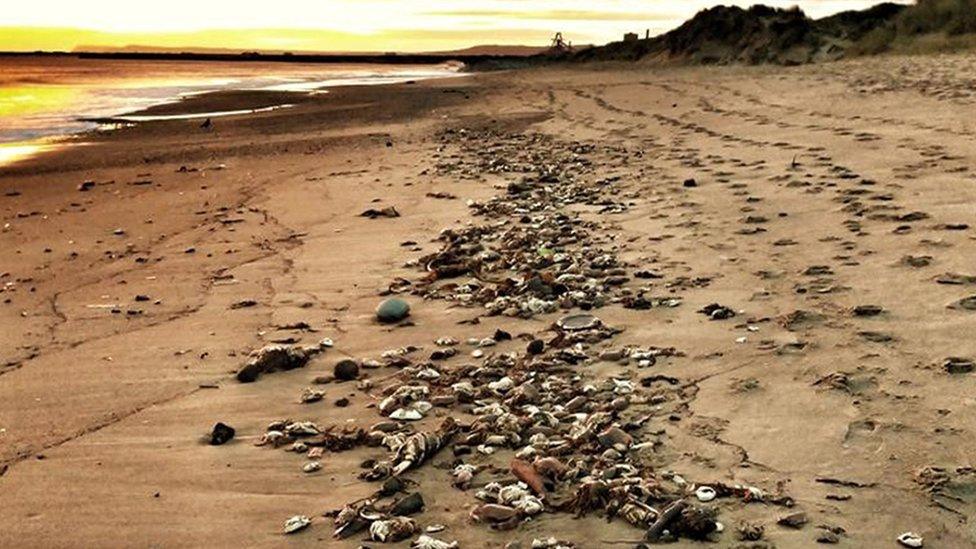
Thousands of crustaceans were found along the coastline including at Seaton Carew

Follow BBC North East & Cumbria on Twitter, external, Facebook, external and Instagram, external. Send your story ideas to northeastandcumbria@bbc.co.uk, external.
Related topics
- Published28 October 2022
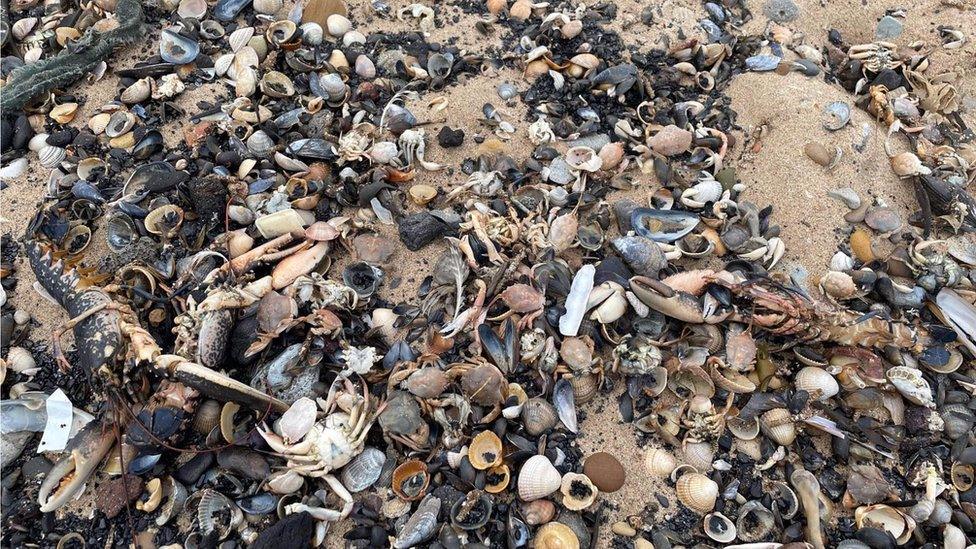
- Published29 September 2022

- Published31 August 2022
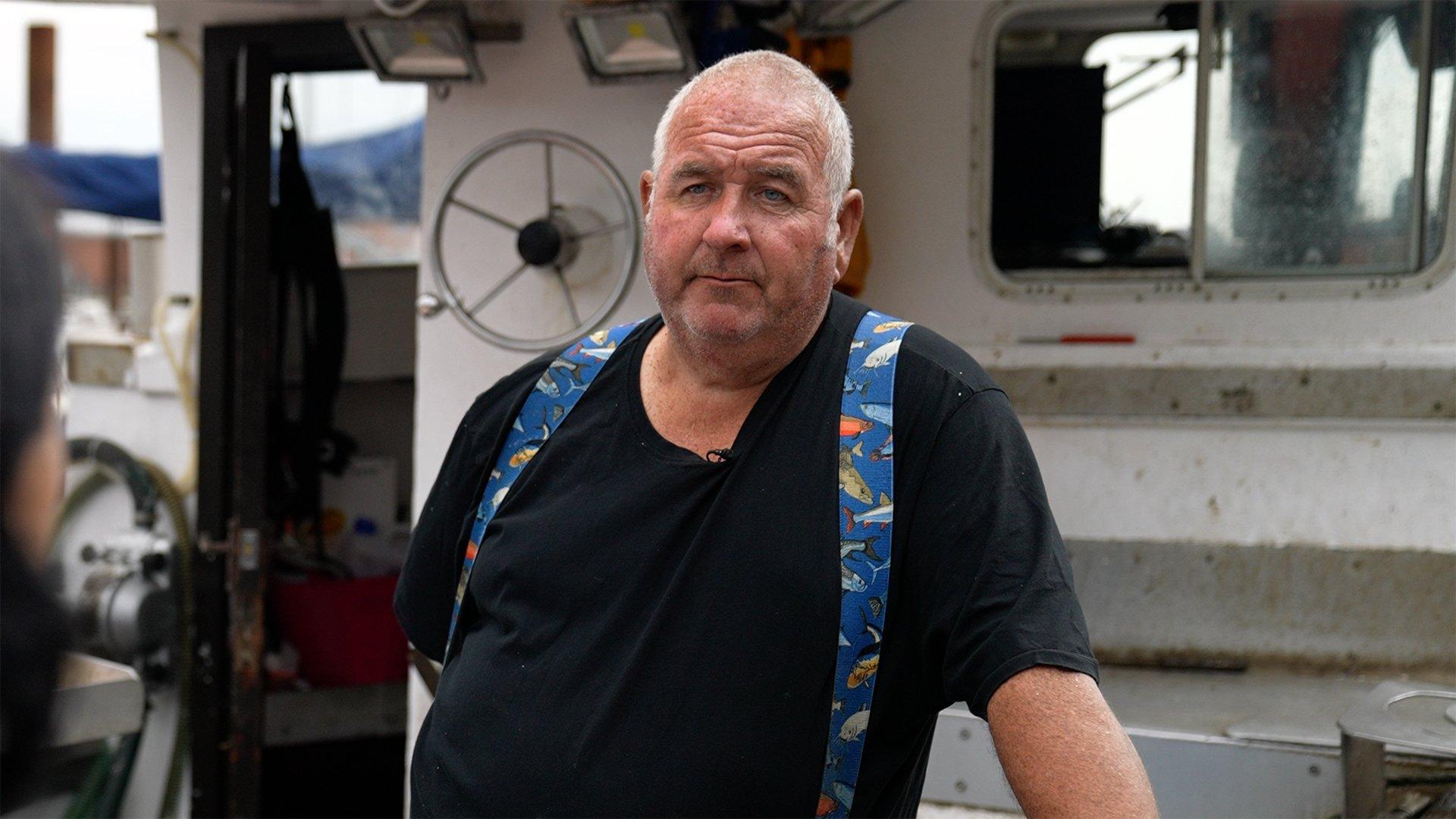
- Published8 August 2022
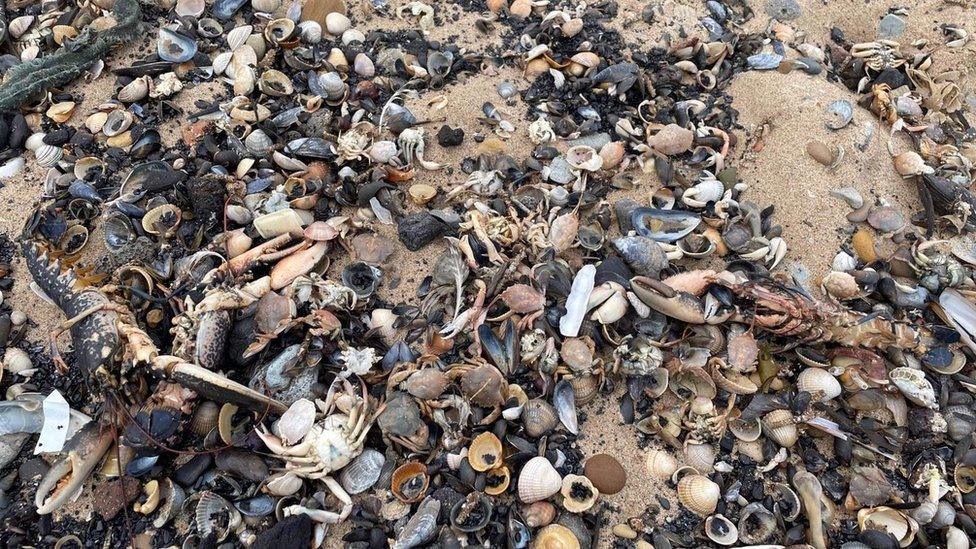
- Published25 October 2021
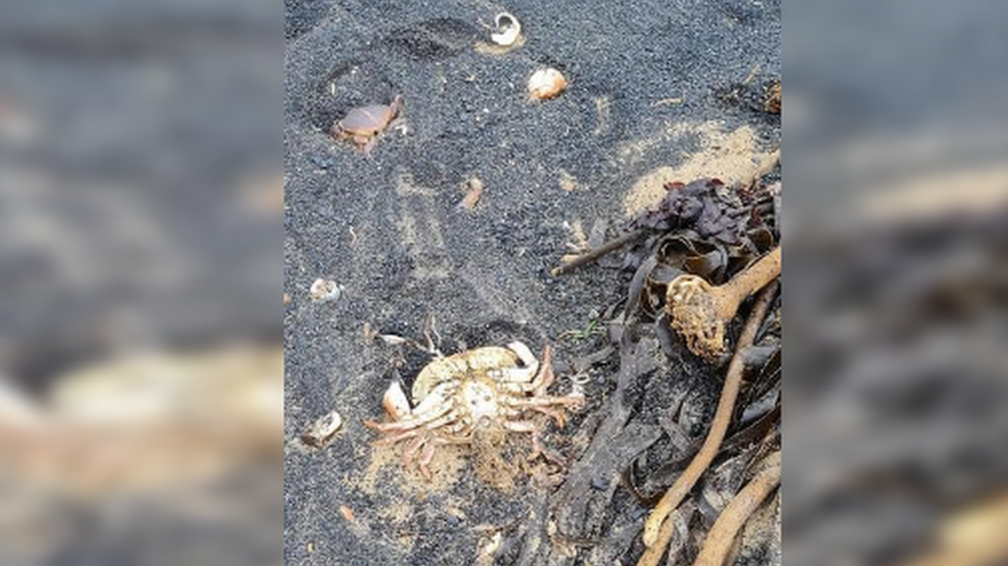
- Published5 February 2022
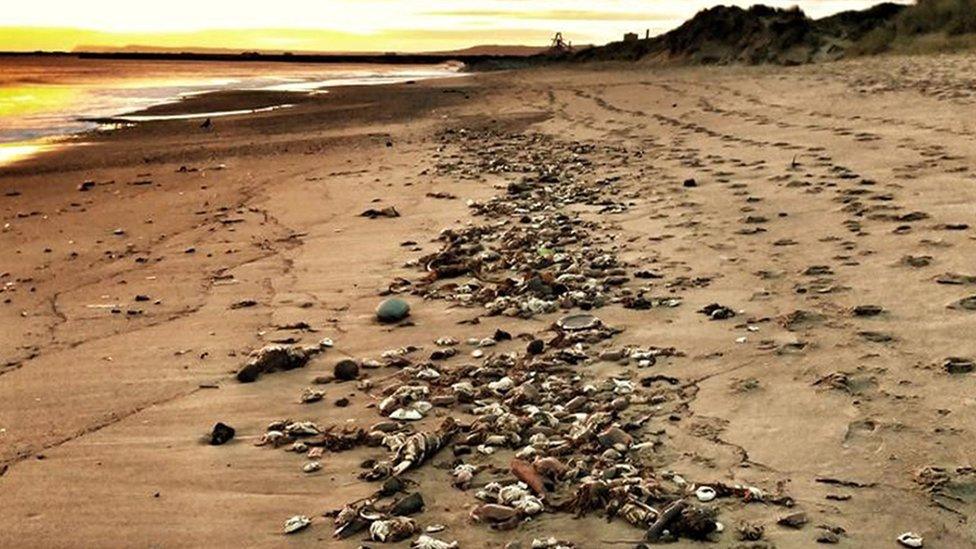
- Published21 January 2022
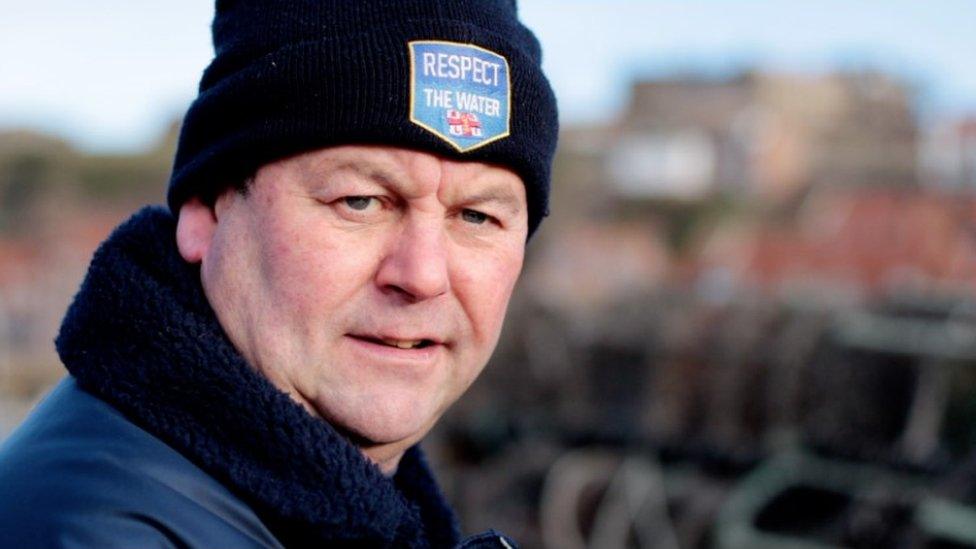
- Published4 November 2021
